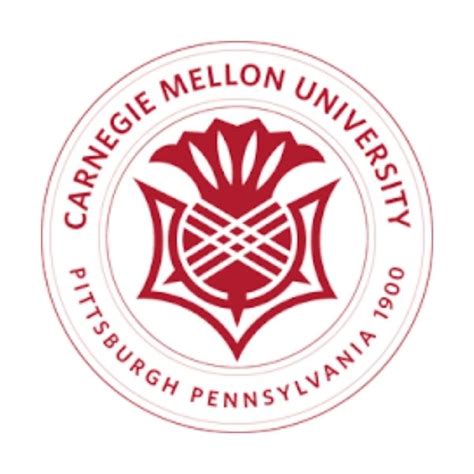Carnegie Mellon University’s Pre-College Programs provide a rigorous and transformative academic experience for high school students aspiring to excel in STEM fields. With a renowned faculty, cutting-edge facilities, and a diverse student body, Carnegie Mellon Pre-College offers a unique opportunity to explore a wide range of disciplines and ignite a passion for lifelong learning.

STEM Education in the 21st Century
In the rapidly evolving landscape of the 21st century, STEM education holds immense importance. According to the National Science Board, the demand for STEM professionals is projected to grow by 8% by 2029. Carnegie Mellon Pre-College recognizes this need and prepares students to meet the challenges and opportunities presented by our increasingly technological society.
Academic Excellence and Rigor
The curriculum at Carnegie Mellon Pre-College is designed to challenge and inspire students. Courses are taught by world-class professors and industry experts who bring their real-world experiences into the classroom. Students engage in hands-on research, collaborate with peers, and sharpen their critical thinking and problem-solving abilities.
Areas of Study
Carnegie Mellon Pre-College offers a comprehensive range of courses in STEM disciplines, including:
- Computer Science: Programming, data structures, algorithms, artificial intelligence
- Engineering: Biomedical, civil, electrical, mechanical engineering, and robotics
- Mathematics: Calculus, linear algebra, probability and statistics
- Natural Sciences: Biology, chemistry, physics, and environmental science
Beyond the Classroom
In addition to academic rigor, Carnegie Mellon Pre-College fosters a vibrant and supportive campus community. Students participate in a variety of extracurricular activities, including:
- Research projects with university faculty
- Student clubs and organizations
- Cultural events and social gatherings
- Field trips to local industries and research institutions
Diversity and Inclusion
Carnegie Mellon Pre-College is committed to creating an inclusive environment where all students feel welcome and respected. The program actively seeks to attract students from diverse backgrounds, including underrepresented minorities, women, and first-generation college students.
Benefits of Carnegie Mellon Pre-College
Participating in Carnegie Mellon Pre-College offers numerous benefits for high school students, including:
- Improved academic performance in STEM subjects
- Enhanced confidence in STEM knowledge and skills
- Development of critical thinking and problem-solving abilities
- Exploration of STEM career pathways
- Preparation for collegiate and graduate studies in STEM fields
Common Mistakes to Avoid
When applying to Carnegie Mellon Pre-College, students should be aware of the following common mistakes:
- Not submitting a strong application: The admission process is competitive, and students should take the time to prepare a compelling application that highlights their academic achievements, extracurricular activities, and personal qualities.
- Applying late: Applications are due by early January, and late applications may be considered on a space-available basis.
- Not considering financial aid: Carnegie Mellon Pre-College offers financial aid to eligible students, including scholarships, grants, and loans. Students should explore all options to make the program affordable.
- Not attending the program: If accepted, students should plan to attend the program as they have committed to do so. Failure to attend may result in the loss of financial aid and academic credit.
Frequently Asked Questions
1. What are the eligibility requirements for Carnegie Mellon Pre-College?
Students who have completed 8th or 9th grade and demonstrate a strong academic record in STEM subjects are eligible to apply.
2. How much does Carnegie Mellon Pre-College cost?
The cost of Carnegie Mellon Pre-College varies depending on the program and duration. Tuition fees range from $4,000 to $8,000 for the summer programs.
3. When should I apply for Carnegie Mellon Pre-College?
The application deadline for the summer programs is early January. The application deadline for the academic year program is early December.
4. What is the acceptance rate for Carnegie Mellon Pre-College?
The acceptance rate for Carnegie Mellon Pre-College varies from year to year, but it is typically around 25%.
5. What are the benefits of attending Carnegie Mellon Pre-College?
Students who attend Carnegie Mellon Pre-College benefit from improved academic performance in STEM subjects, enhanced confidence in their STEM knowledge and skills, development of critical thinking and problem-solving abilities, exploration of STEM career pathways, and preparation for collegiate and graduate studies in STEM fields.
6. What is the difference between the summer and academic year programs?
The summer programs are typically 3-4 weeks long and offer a wide range of courses in STEM disciplines. The academic year program is a full-year program that offers a more in-depth exploration of STEM subjects.
Conclusion
Carnegie Mellon Pre-College is the premier destination for high school students who are passionate about STEM. With its rigorous academics, vibrant campus community, and commitment to diversity and inclusion, Carnegie Mellon Pre-College empowers students to reach their full potential and become the leaders of tomorrow in STEM fields.
